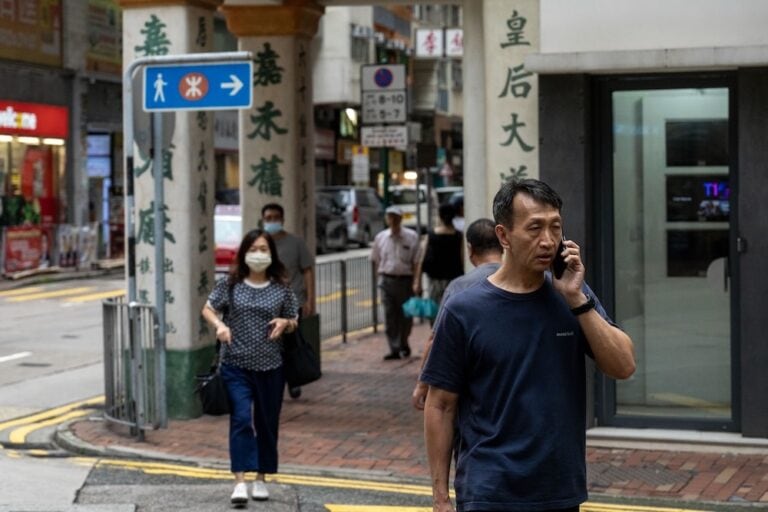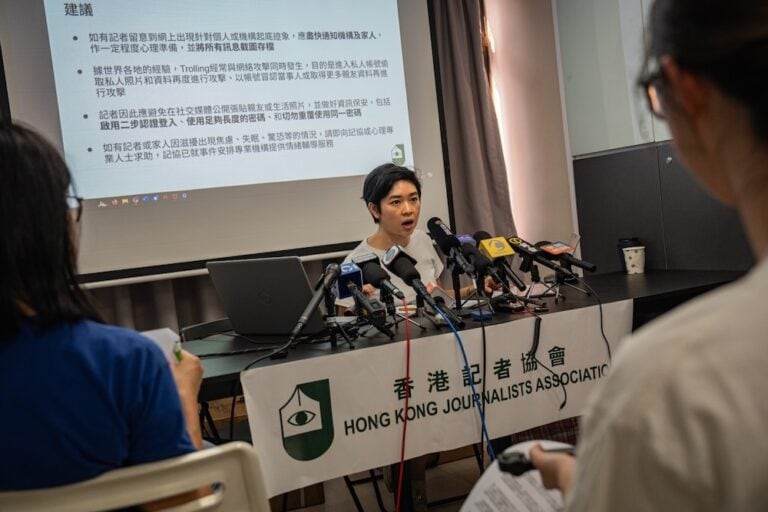Freedom House said many provisions in the proposed law would endanger democracy advocates, civic activists, and journalists, as well as many members of religious and ethnic minority groups in Hong Kong.
This statement was originally published on freedomhouse.org on 22 May 2020.
In response to a proposal in the Chinese National People’s Congress (NPC) that would impose national security legislation on Hong Kong and effectively criminalize various forms of political activity and civic engagement, Freedom House issued the following statement:
“Beijing is taking advantage of the global distraction created by the coronavirus pandemic to impose its will on Hong Kong, in direct violation of its international commitments,” said Freedom House president Michael J. Abramowitz. “The Chinese leadership is essentially trying to bypass Hong Kong’s legislature to enact a repressive law with profound implications for freedom and human rights in the territory.”
“The day this legislation passes and comes into effect will mark the end of the ‘one country, two systems’ arrangement, which has guaranteed Hong Kong’s autonomy and ensured its comparative freedom and prosperity since 1997,” Abramowitz added. “The proposed national security provisions would endanger democracy advocates, civic activists, and journalists, as well as many members of religious and ethnic minority groups in Hong Kong whose counterparts in mainland China are severely persecuted, including Uighur Muslims, practitioners of Falun Gong, Roman Catholics, and other Christians. The legislation’s impact could be far-reaching, and the proposal deserves an urgent and forceful international response.”
Background:
On May 21, Chinese officials announced plans to tighten control over what they consider to be national security matters in Hong Kong. China’s Communist Party-controlled legislature is expected to endorse a decision in the coming weeks that would pave the way for its Standing Committee to adopt legislation targeting “separatism, subversion of state power, terrorism, and foreign interference” in the territory. The changes would also allow mainland Chinese security agencies to operate directly in Hong Kong, further undermining the rule of law.
Article 23 of Hong Kong’s Basic Law, effectively its constitution, calls for the territory to enact national security laws “on its own” to prohibit sedition, secession, subversion, and other such offenses, but Hong Kong officials’ last major attempt to do so in 2003 was shelved after mass protests. The newly proposed decision would open the door for China’s NPC Standing Committee to pass legislation that would be annexed to the Basic Law under a mechanism allowing national laws to be directly promulgated by the unelected Hong Kong government, meaning it could come into force without first being approved by Hong Kong’s Legislative Council, where elected prodemocracy lawmakers hold a large share of the seats.
China is rated Not Free in Freedom in the World 2020, and Not Free in Freedom on the Net 2019. Hong Kong is rated Partly Free in Freedom in the World 2020.



